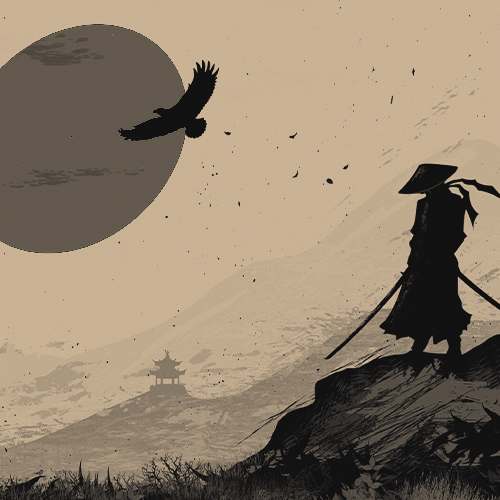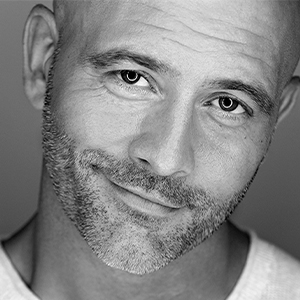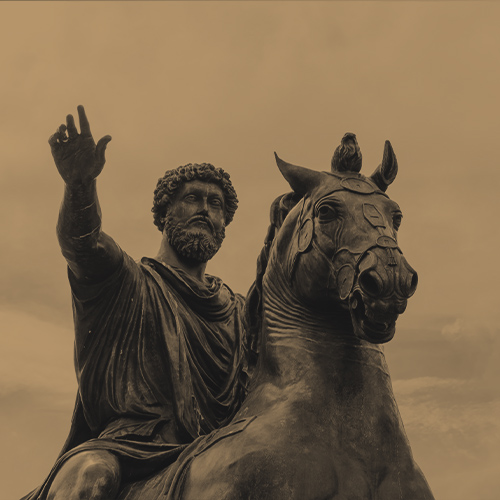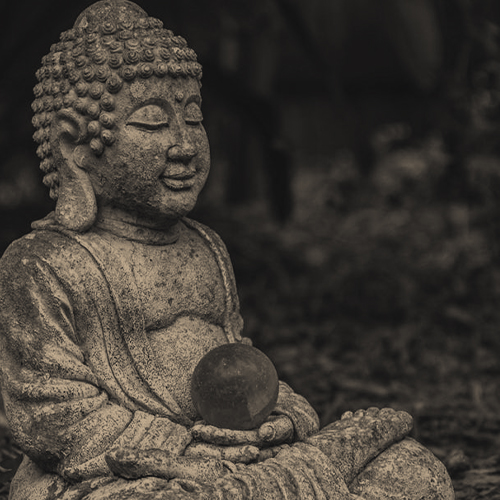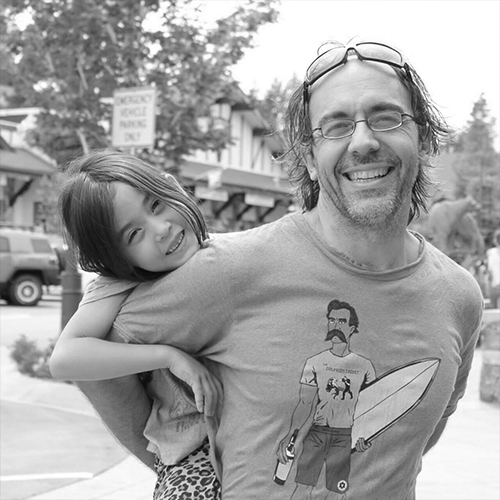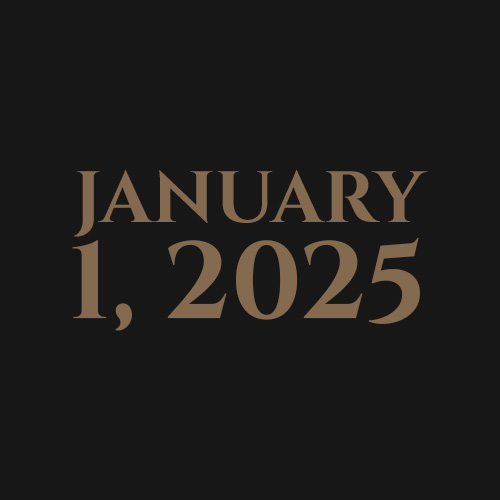This week on Acta Non Verba I’m sharing the personal insights and revelations that I observed through reading the book Thick Face Black Heart. Join me as I share why we need both dark and light, strength and compassion, when developing our own personal strategies for success and for life.
Episode Transcript:
Many of us were taught that when someone slaps you, that you should turn the other cheek. But this is not always the best course of action. You see, there is a time to submit to being slapped, but there is also a time to hit back twice.
01:02
so that you will never be slapped again. If you turn the other cheek because you are afraid to hit back, it does not mean that you are morally superior. It simply means that you are a coward. Indeed, it’s very easy to act humble if you’ve never accomplished or even attempted anything worthy of mention. It’s easy to act morally superior when you have no capacity for violence.
01:31
I’m Marcus Aurelius Anderson and this is another installment of Octonom Verba’s Warrior Wisdom. In these solo episodes, I’ll highlight lessons and philosophies from warriors past and present, from the battlefields of Italy, Greece, and Japan, to modern day warfare including tactics seen in business, society, and culture. The reality is this. The world is a battlefield. And to not master these lessons,
01:59
leaves you grossly ill-prepared for the adversity that you will inevitably face in the future. Today’s lesson and opening quote originally comes from China in the early 20th century and was revised near the end of the same century in the 1990s. Thick Black Theory was written by Li Zongcheng. Li first published his ideas in 1911, a year of chaos and profound change in China. It was the year of the overthrow of the Qing dynasty
02:29
the last in the succession of imperial dynasties, the stretch back to the beginning of human civilization. Thick Black Theory has never been translated or published outside of China. Even within China, Lee’s frank discussion of the uses of ruthlessness and hypocrisy was so disturbing to those that were ruthless and hypocritical that Thick Black Theory has been banned almost since the day that it was published. My friends, this in and of itself should make this book worthy of reading.
02:59
anything that is published and then immediately banned in my mind has at least some sort of profound truth worth exploring. Which is why it took a native Chinese like Qin Enchu, who was raised in the culture and therefore understood all of the context as well as subtext to efficiently communicate the wisdom to Westerners and the non-Chinese. When I’m asked about book recommendations, Qin Enchu’s book based on Lee’s teachings that she wrote called
03:28
Thick-Faced Black Heart is one of the books that I always mention. It was a book that I first read in 1997, and it hit me like a punch in the face. Thick-Faced Black Heart was one of the first books that I had ever read that talked about the need for the duality of both light and dark, humility and boldness, strength and compassion. And I don’t mean this in the very simple, vague notion of yin-yang. I’ve read and studied plenty of books that mention one side of the coin excessively, yet deep down,
03:58
I knew that you could not have one without the other. In fact, not understanding the need for this leads to asymmetry, a lack of balance, if you will, causing pain and friction and other areas of life. This book also had a big influence on my TEDx talk and book, The Gift of Adversity. Some may believe that reading about the ruthlessness of war and the brutal tactics used in warfare means that the reader must be depraved or power hungry, but that is not necessarily the case.
04:26
to read the Art of War by Sun Tzu, the Prince by Machiavelli, or even the 48 Laws of Power by Robert Greene, helps one see past their own limited perspective. Now, I may never want to use such merciless tactics against another person, yet by not being aware of these strategies, I leave myself open to be readily victimized by them repeatedly. To not understand this diabolical psychology would be similar
04:55
to me issuing a voluntary unilateral disarmament while my enemy is still armed to the teeth. It would be similar to me dropping my sword right as my adversary begins to swing his. Just because I do not think of using such treachery against others does not mean that they may not try to use it against me. Therefore, being aware of these tactics is the first step to being able to defend myself against them.
05:21
This is the harsh reality that many do not want to see because, frankly, it is uncomfortable to behold. You must understand, these concepts are not immoral. They are amoral. There is no intention or prejudice in these concepts. They simply are. If there’s a plane crash, no one blames the laws of physics. People don’t blame gravity and say that it pulled the plane from the sky and killed hundreds.
05:50
Gravity is simply a natural law. If you ignore this law, you do so at your own peril. So what does thick-faced black heart mean? Reading directly from the book, thick-face is defined as the shield. The concept of thick-face is as follows, a shield to protect your self-esteem from the bad opinions of others. A person adept at thick-face creates their own positive self-image
06:19
despite the criticism of others. A thick-faced person has the ability to put self-doubt to the side. He refuses to accept the limitations that others have tried to impose upon him, but more importantly, he does not accept any of the limitations that we commonly impose upon ourselves. The world has a tendency to accept our own judgment of ourselves. By his absolute self-confidence, the thick-faced person instills confidence in others.
06:49
They see him as a success and allow him the latitude to be successful. In the West, many talk about the need for a thick skin when it comes to combat or entrepreneurship. This is exactly what thick face is all about. The definition of black heart, the spear. Black heart is the ability to take action without regard of how the consequences will affect others. A black heart is ruthless, but not necessarily evil.
07:20
Before the advent of modern medicine, a surgeon operated without being able to give his patient anesthesia. He had to be able to cut swiftly and decisively without any regard for the patient’s screams and resistance. In order to be effective, he had to be extremely callous and emotionally detached from the pain that he was inflicting. Conversely, a general who is so full of human compassion that he is reluctant to order soldiers to their death,
07:49
is of no use to his country. He will be defeated and his people will be conquered. Whereas a black-hearted general can put the damage of battle out of his mind to fully concentrate on the required result, victory at all costs. An entrepreneur must be able to make hard decisions regarding unprofitable operations. If he cannot, his company will fail. The end result of short-sighted compassion for some employers
08:19
will be the closure of their entire operation and all of their employees will be out of work. The black-hearted person is above short-sighted compassion. He focuses his attention on the goals and ignores the cost.
08:35
According to Chen and Chu, there are three phases of thick-faced black heart. The first phase has this idea of winning at all costs. In its crudest, most superficial form, thick-faced black heart is not about ethics. It is about effective action. But as she mentions, this is only the very beginning of thick-faced black heart at its most superficial level. The second phase is the phase of self-inquiry. Beneath phase one lies deeper essence of thick-faced black heart.
09:05
Some people practice thick-faced black heart and find it to be repellent even to themselves. Consequently, they begin a process of self-inquiry. At the stage of self-inquiry, the individual is often vulnerable because he has rejected the powerful wicked behaviors of phase one and is in search of the realms of the unknown. His spirit is also demanding greater satisfaction from this conduct. He is in a state of uncertainty, confusion, and sometimes pain and anger.
09:34
At this stage, even though he may look disheveled and consider disjointed by some, within himself he is going through a powerful transformation. The third and final phase is called the Warrior. The final phase is the combination of all previous phases. After phase two, the practitioner becomes indifferent and courageous. He adopts the Warrior’s attitude, the idea of dispassion and detachment. He sees life as a battle that must be fought.
10:03
and there is no way out. Victory is the only aim.” She goes on later to say, even the greatest warriors when standing in the mess of the battlefield sweat with fear. This is a powerful truth regarding the warrior. It reminds me of a story that Mike Tyson was told by his trainer, Custamato. The story is called The Hero and the Coward. Some may not know this, but Mike Tyson was so afraid to get into the ring and fight, especially as an amateur.
10:32
that he would literally sit in the back in the dressing room crying, scared to death to lay foot in the square circle. Cuss’ motto literally had to corral him to walk out to the ring to fight his opponent. Cuss told him the story of the hero and the coward early on to give him courage in the face of this adversity. The story of the hero and the coward goes like this. The hero and the coward both feel the same thing.
11:02
but it’s what they do with that fear that makes them different. The hero takes the fear, lets it run through them, but then projects that fear into energy and aggression towards their adversary. The coward allows the fear to overtake them and stunts their capacity to be a warrior. Both people feel the same thing, fear. It’s what they do with it that makes one the hero and the next the coward. Later on in the book, the author touches on this as well.
11:31
Often the bravest warriors were originally the greatest cowards. The more fear that you confront and conquer, the greater the courage that you will possess. Indeed, we are only as strong as the adversity that we overcome. She goes on near the end of that chapter to say, a successful life is one that is lived through the understanding and pursuits of one’s own path, not chasing after the dreams and ambitions of others. A thick-faced black-heart practitioner must exercise his ability
12:00
to ignore criticism, ridicule, and vilification from others, and at the same time carry out their duties as they see fit. Understand, thick-faced black heart may sound ruthless, yet one will learn by adapting and adopting many of these non-destructive forms of ruthlessness that one can gain the freedom and actions necessary to achieve effectiveness in daily tasks and execution.
12:29
The ultimate courage of a thick-faced, black-heart practitioner is dispassion, which means having the courage to fight in spite of fear, to be able to detach from the emotion associated with defeat so that its presence does not thwart you in the heat of battle. Going back to the original quote from the intro of this episode, many of us were taught that when someone slaps you that you should turn the other cheek. This is not always the best course of action. There is a time to submit to being slapped.
12:58
and there is a time to hit back twice so that you will never be slapped again. If you turn the other cheek because you are afraid to hit back, it does not mean that you are somehow morally superior. It simply means that you are a coward. A great example of this is found later on in the book in Chapter 12. Not long ago, Middle Eastern terrorists took Russian personnel hostage. KGB agents responded swiftly by kidnapping close relatives of the responsible terrorist leaders.
13:27
The KGB cut body parts off of the relatives and sent them along with notes warning that the terrorist wives and children would be next if the Russian prisoners were not immediately released. The hostages were quickly released and no Russian has been taken hostage since. Indeed a powerful example of thick face, black heart. Now there are many parts of this book that are powerful and informative.
13:56
And I only want to touch on a few to give you a taste of it so that you will actually pick up the book, read it, and process it for yourself. One of the next parts that I think is so powerful is this notion of winning through negative thinking. Because in today’s day and age, everybody seems to want to be positive. They have almost this toxic idea of false positivity. And that in and of itself creates the negative effect. You can succeed the way that you are right now.
14:25
In past decades, the idea that we need to change our negative attitudes to positive ones before we can be successful at anything has been pounded into us. If we learn only one thing from this book, it should be that you can succeed the way that you are right now. For once, those who have been annoyed at the concept of superficial positive thinking have a method that they can live by and believe in. Success has no rules. Success comes in every shape and profile.
14:54
Catalyst Good books have been published on the subject, and all this information can contribute to our efforts towards success, but the truth remains. Success has no rules. Success comes to some of the most negative people, as well as some of the most positive ones. Success comes to some of those that try hard, but also to those that make no visible effort. What promoters of positive thinking theories fail to realize is that success does not discriminate. It can come to those who project either negative or positive attitudes.
15:25
Again, this is a reality that I have observed oftentimes, and this helps me reconcile this notion that there are some people that go out of their way to be underhanded while others go out of their way to be magnanimous. The last thing that I will discuss from this incredible book, Thick-Faced Black Heart, are the seven steps of unfolding. The seven steps of unfolding. These are the steps necessary to go from a confined mindset regarding what is possible to the mentality
15:53
that we were originally born with, one of limitless possibilities. As children, we are often told, you can do or be whatever you want. The sky’s the limit. But as we get older, we become more accustomed to others telling us, hey, listen, just be realistic, conform to the norm. This state was taken from us by social conditioning. And to the degree by which that statement offends you is the degree of social conditioning and political correctness that you’ve been conditioned to.
16:23
The seven steps of unfolding briefly are as follows. One, the desire to do right. In other words, these are people pleasers. These are the people that if hit, they turn the other cheek like a coward, not because of moral superiority. Number two, the realization that you need to stay true to your inner self. Number three, surrender to complete self-expression. Number four,
16:53
changing and shedding the old skin. Number five, the natural thick-faced black heart that comes to your surface. Number six, peace and tranquility with this. And then number seven, the final stage is detachment. Now, remember, you cannot skip any of these stages, and you may want to, but it is impossible to truly move forward until you’ve learned the lesson well.
17:24
What I’m trying to say is this, in the end, there is only two ways to do anything, correctly and again. In addition to what I’ve already mentioned from this book, there are powerful chapters on Dharma and destiny, winning through negative thinking, as I mentioned previously, the magical powers of endurance, the mysteries of money, deception without deceit, the 16 noble attributes of work, the advantage to playing the fool,
17:53
thriving among the cunning and ruthless, acquiring the killer instinct and developing it, an entire chapter on leadership from a thick-faced black-heart perspective, paths to thick-faced black-heart, and how a piranha eats a shark. Another thing that makes this book very user-friendly is that at the end of each chapter is a summary of key points. This makes for very easy reference when trying to find specific information. In closing, I read this book at least once a year
18:23
and learn something new every single time. I highly recommend this book to warriors, leaders, entrepreneurs, athletes, and frankly, anyone who wants to build mental resilience and endurance in a frank and pragmatic way.
